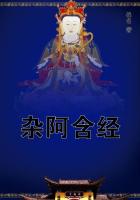"What did I tell you?" cried Alessandro, galloping up on Benito, and reining him in so sharply he reared and plunged. "What did I tell you? I saw by your face, many paces back, that you had come as you went, or worse! I have been watching for you these two days. Another American has come in with Morong in the canon; they are ****** corrals; they will keep stock. You will see how long we have any pasture-lands in that end of the valley. I drive all my stock to San Diego next week. I will sell it for what it will bring,-- both the cattle and the sheep. It is no use. You will see."
When Ysidro began to recount his interview with the land-office authorities, Alessandro broke in fiercely: "I wish to hear no more of it. Their names and their speech are like smoke in my eyes and my nose. I think I shall go mad, Ysidro. Go tell your story to the men who are waiting to hear it, and who yet believe that an American may speak truth!"
Alessandro was as good as his word. The very next week he drove all his cattle and sheep to San Diego, and sold them at great loss.
"It is better than nothing," he said. "They will not now be sold by the sheriff, like my father's in Temecula." The money he got, he took to Father Gaspara. "Father," he said huskily. "I have sold all my stock. I would not wait for the Americans to sell it for me, and take the money. I have not got much, but it is better than nothing.
It will make that we do not starve for one year. Will you keep it for me, Father? I dare not have it in San Pasquale. San Pasquale will be like Temecula,-- it may be to-morrow."
To the Father's suggestion that he should put the money in a bank in San Diego, Alessandro cried: "Sooner would I throw it in the sea yonder! I trust no man, henceforth; only the Church I will trust.
Keep it for me, Father, I pray you," and the Father could not refuse his imploring tone.
"What are your plans now?" he asked.
"Plans!" repeated Alessandro,-- "plans, Father! Why should I make plans? I will stay in my house so long as the Americans will let me. You saw our little house, Father!" His voice broke as he said this. "I have large wheat-fields; if I can get one more crop off them, it will be something; but my land is of the richest in the valley, and as soon as the Americans see it, they will want it.
Farewell, Father. I thank you for keeping my money, and for all you said to the thief Morong. Ysidro told me. Farewell." And he was gone, and out of sight on the swift galloping Benito, before Father Gaspara bethought himself.
"And I remembered not to ask who his wife was. I will look back at the record," said the Father. Taking down the old volume, he ran his eye back over the year. Marriages were not so many in Father Gaspara's parish, that the list took long to read. The entry of Alessandro's marriage was blotted. The Father had been in haste that night. "Alessandro Assis. Majella Fa--" No more could be read. The name meant nothing to Father Gaspara. "Clearly an Indian name," he said to himself; "yet she seemed superior in every way. I wonder where she got it."
The winter wore along quietly in San Pasquale. The delicious soft rains set in early, promising a good grain year. It seemed a pity not to get in as much wheat as possible; and all the San Pasquale people went early to ploughing new fields,-- all but Alessandro.
"If I reap all I have, I will thank the saints," he said. "I will plough no more land for the robbers." But after his fields were all planted, and the beneficent rains still kept on, and the hills all along the valley wall began to turn green earlier than ever before was known, he said to Ramona one morning, "I think I will make one more field of wheat. There will be a great yield this year. Maybe we will be left unmolested till the harvest is over."
"Oh, yes, and for many more harvests, dear Alessandro!" said Ramona, cheerily. "You are always looking on the black side."
"There is no other but the black side, Majella," he replied. "Strain my eyes as I may, on all sides all is black. You will see. Never any more harvests in San Pasquale for us, after this. If we get this, we are lucky. I have seen the white men riding up and down in the valley, and I found some of their cursed bits of wood with figures on them set up on my land the other day; and I pulled them up and burned them to ashes. But I will plough one more field this week; though, I know not why it is, my thoughts go against it even now.
But I will do it; and I will not come home till night, Majella, for the field is too far to go and come twice. I shall be the whole day ploughing." So saying, he stooped and kissed the baby, and then kissing Ramona, went out.
Ramona stood at the door and watched him as he harnessed Benito and Baba to the plough. He did not once look back at her; his face seemed full of thought, his hands acting as it were mechanically.
After he had gone a few rods from the house, he stopped, stood still for some minutes meditatingly, then went on irresolutely, halted again, but finally went on, and disappeared from sight among the low foothills to the east. Sighing deeply, Ramona turned back to her work. But her heart was too disquieted. She could not keep back the tears.
"How changed is Alessandro!" she thought. "It terrifies me to see him thus. I will tell the Blessed Virgin about it;" and kneeling before the shrine, she prayed fervently and long. She rose comforted, and drawing the baby's cradle out into the veranda, seated herself at her embroidery. Her skill with her needle had proved a not inconsiderable source of income, her fine lace-work being always taken by San Diego merchants, and at fairly good prices.















